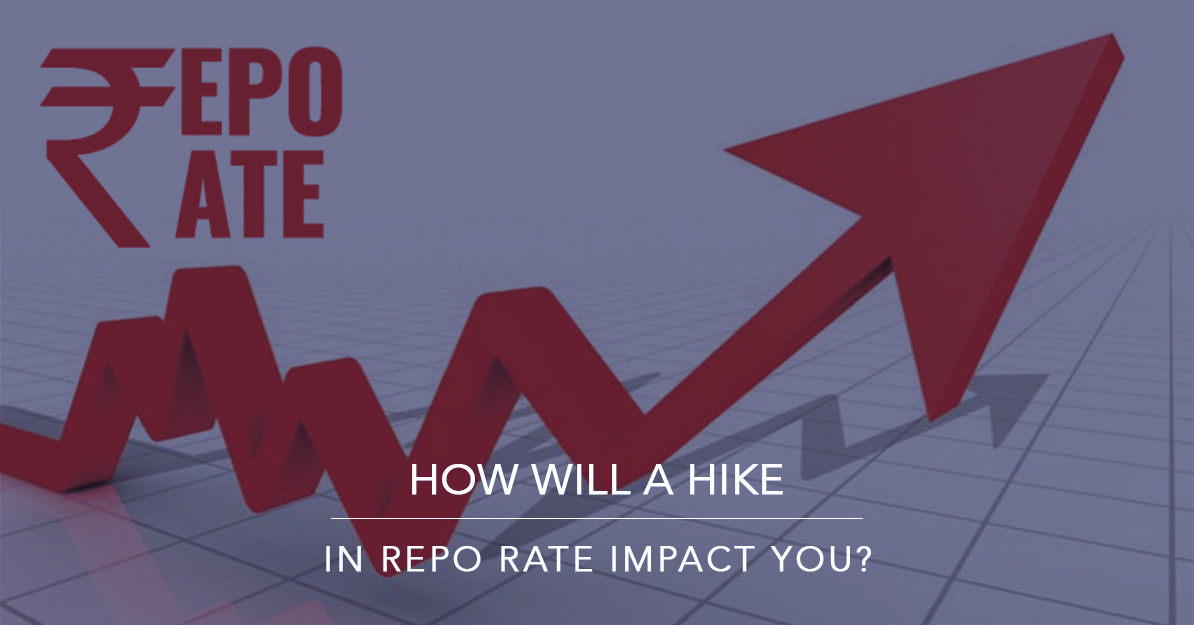On September 30 2022, for the fourth time in a row, the Reserve Bank of India’s Monetary Policy Committee (MPC) decided to raise the repo rate or the lending rate by approximately 50 basis points. Simply speaking, the RBI increased the rate to 5.90%, joining the group of all the central banks and financial institutions that have done the same thing to counter inflation and rising dollar prices.
Let us understand the Repo Rate and how the hike will impact you and your money.
What is Repo Rate?
The repo rate is the rate at which the central bank of a country (which is the Reserve Bank Of India for us) lends out funds to other commercial banks. When banks borrow money from RBI, they must submit securities like collateral, treasury bills, or Government bonds. Mostly these loans are short-term loans when a bank is in dire need of emergency funds.
RBI increases or decreases the repo rate to balance inflation by keeping the money supply in check.
The repo rate was first hiked this year in May to 4.40%. It was further increased again in June to 4.90 per cent. The next hike happened in August when the repo rate was increased to 5.40%. Currently, the repo rate is 5.90%.
Impact of Repo Rate Hike on Citizens
1. Loans and EMI
When the banks or financial institutions increase the repo rates, the existing borrowers will experience a hike in their monthly EMI. This will have a big impact on people who are planning to buy new homes. The rate Hike impacts all types of loans like student loans, business loans, credit card loans, mortgages, personal loans, and various others. So if you are planning to buy 2BHK apartments in Gurgaon, you must learn about the new repo rate and how it will affect your EMI.
Any change in the rate affects all types of customers as borrowing money from a bank or financial institution becomes more expensive. Therefore, it lowers the consumption of goods and services.
2. Savings
Individuals with savings and fixed deposits will usually benefit from the higher repo rates.
3. Mutual funds
All mutual fund investors, especially those who invest in-depth mutual funds, must be extremely careful during this hike in the repo rate. The rate increase directly affects debt mutual funds, especially all the long-duration bond funds. This is because all the bond prices start falling as the yield increases. This, in turn, lowers the return gained from debt investment. If you are a debt investor, you might experience temporary medium-range volatility.
4. Fixed deposit rates
All the consumers who have short or medium-term investments in banks and Financial institutions like fixed deposits will benefit hugely from the higher repo rates. This is because they will be receiving much higher returns from the investment. However, this depends on how and when your bank accepts the new rate.
5. Inflation
By the end of the next fiscal year, it is estimated that India will face economic stagnation if the inflation growth situation does not improve. Therefore, there won’t be any growth, the unemployment rate will increase, and inflation will continue.
To balance the country’s macroeconomic factors, RBI continuously monitors and updates the repo rate. Every time there is a change in the repo rate has a big impact on all the economic sectors. If you are planning to buy a 3BHK flat in Gurgaon, you should visit Krisumi Japanese Waterfall Residencies.



